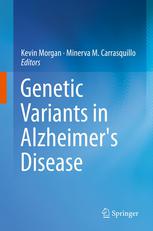

Most ebook files are in PDF format, so you can easily read them using various software such as Foxit Reader or directly on the Google Chrome browser.
Some ebook files are released by publishers in other formats such as .awz, .mobi, .epub, .fb2, etc. You may need to install specific software to read these formats on mobile/PC, such as Calibre.
Please read the tutorial at this link: https://ebookbell.com/faq
We offer FREE conversion to the popular formats you request; however, this may take some time. Therefore, right after payment, please email us, and we will try to provide the service as quickly as possible.
For some exceptional file formats or broken links (if any), please refrain from opening any disputes. Instead, email us first, and we will try to assist within a maximum of 6 hours.
EbookBell Team

4.8
94 reviewsAlzheimer’s Disease is the most common form of dementia. The disease is characterised by the loss of synapses and neurons in the cerebral cortex and certain subcortical regions. In the last three years, the genetics of Alzheimer’s Disease has made significant advances; in fact, one could argue more than in the previous two decades. This has resulted in the identification of nine new genes and perhaps more importantly the realization that new pathways could be involved in the pathogenesis of Alzheimer’s. These new pathways are now legitimate targets for therapeutic intervention, which can possibly lead to treatment or a possible cure. The aim of this book is to put all of the recent genetic data on these new genes into context. Different genetic variants will be discussed, as well as biomarkers and future possibilities.